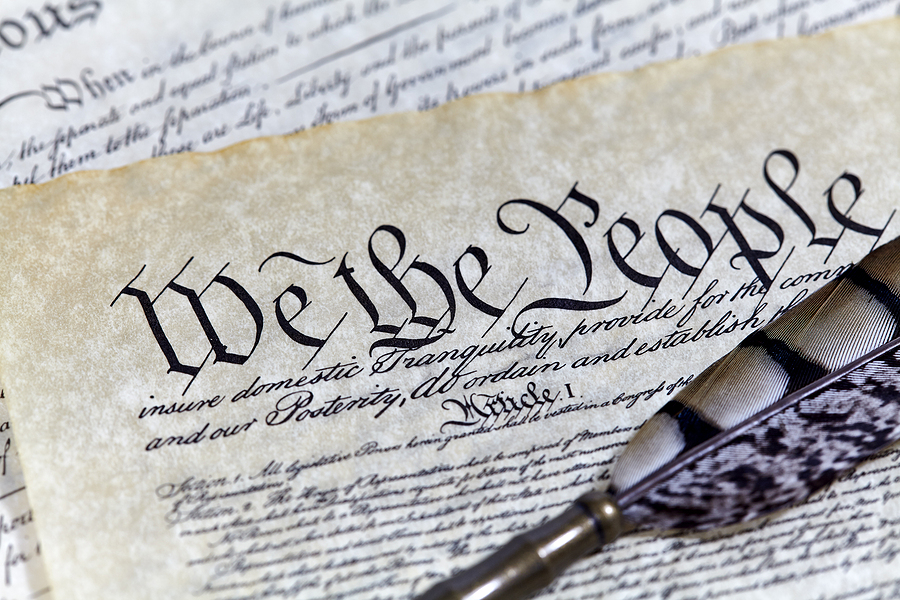The 8th Amendment of the United States Constitution prohibits excessive bail from being imposed. Despite this, many individuals in the criminal justice system are not treated fairly and are forced to pay unaffordable amounts of money for their freedom before trial. This has led to an explosion in the use of bail bonds as a means to secure release from jail, but these bonds come with significant drawbacks that can be difficult for people to overcome.
In this blog post, we will explore why imposing excessive bail is unconstitutional and what alternatives exist for defendants who cannot afford it. We will also discuss how bail bond companies work and how they often take advantage of those least able to defend themselves against them. Finally, we’ll look at some potential solutions that could help make sure no one is denied their right to fair treatment under the law due to an inability to pay excessive fees or obtain a bail bond.

What is Our 8th Amendment Right as United States Citizens?
The 8th Amendment of the United States Constitution protects citizens against excessive bail. This amendment states, “Excessive bail shall not be required, nor excessive fines imposed, nor cruel and unusual punishment inflicted.” This language is clear – no individual should be denied their right to a fair trial due to an inability to pay an unaffordable amount of money for their release from jail. Yet, this is all too often the case in our criminal justice system. Many defendants are held in custody until they can come up with a predetermined amount of cash or collateral to secure their freedom, and those who cannot afford it can find themselves stuck in jail awaiting trial for lengthy periods of time.
Using Bail Bonds to Get Out of Jail
In many cases, individuals unable to meet the requirements for bail turn to a licensed and insured bail bond company, which charges a nonrefundable fee for the service of securing release from jail. In addition, the terms of most bail bonds require that the defendant return to court at all times or face revocation of their bond and criminal charges for failure to appear in court. Although this system is helpful, missing court can further complicate matters and increase potential costs for defendants and their bail bond cosigner.
Navigating Around a Situation of Excessive Bail
There are some alternatives available for individuals facing excessive bail. One option is to transfer ownership of property as collateral instead of cash; this allows someone unable to pay large sums of money up front the chance to be released from jail and remain out of custody while awaiting trial. Another option is for the defendant to hire a lawyer who can argue in favor of a lower bail amount or for release on their own recognizance, meaning they would be allowed to leave the court without having to pay any money up front. Finally, some jurisdictions offer pre-trial services that provide non-cash forms of bail, such as supervised release programs.
What’s Essential Here
It’s clear that imposing excessive bail amounts on defendants is unconstitutional and creates an unfair situation for those least able to defend themselves against it. It’s important that those within the criminal justice system are aware of their rights under the 8th Amendment and how they can fight excessive fees associated with obtaining a bond or securing release from jail. It’s also essential that alternative forms of bail are available so that those who can’t afford traditional bonds still have a chance to get out of jail and await their trial in freedom. By understanding the issues surrounding excessive bail, as well as making sure defendants are aware of their rights, we can ensure that everyone is treated fairly under the law.
In Summary
In conclusion, it is important to remember that imposing excessive bail amounts on individuals is unconstitutional according to the 8th Amendment of the United States Constitution. Everyone should be aware of their rights and know what alternatives exist for obtaining release from jail without having to pay unaffordable fees. Understanding these issues and potential solutions will help ensure that no one is denied fair treatment due to an inability to access the resources necessary to secure bail.
Looking for fast and friendly, emergency assistance with getting yourself or someone else out of jail in Indiana? Contact Woods Bail Bonds at 317-876-9600 for fast and secure bail bond service in Indianapolis and its surrounding counties. We also offer pre-arranged bail for arrest warrants.
Related Posts:
Understanding Your Rights under the 8th Amendment
What are Your Rights After Being Arrested?
What You Need to Know About Being Denied Bail After an Arrest

